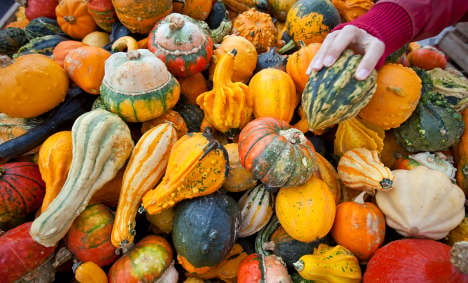I was never hungry as a child. Not that people were starving in ’70s suburban America. I mean, I was never hungry. My family was overweight decades before it was trendy.
As long as I can remember, my parents never warned us not to snack lest it spoil our dinner. Instead, they always put out a little board of cheese and crackers. “Wouldn’t want you to starve to death before the food is on the table,” my father liked to say. It never occurred to me that this might not be the norm until I was in college and my grandparents started dropping off.
Rather than moments of sorrow, the hours preceding and following the funerals were marked by excuses of why we needed to eat local delicacies. My grandparents lived in the Midwest. Local delicacies were always fried and never delicacies at all. The funerals were Roman orgies of potato chips and fried pork products.
And donuts.
My first real girlfriend was the first to show me the pleasurable side of food. She was an East Coast Italian-American and was as annoyingly proud of East Coast Italian food as all East Coast Italian-Americans. But she taught me there was more to food than just stuffing it in your gob to mask feelings or participate in familial rituals. Food actually tasted. And sometimes it could taste better if you were a little hungry.
My German wife taught me my second important food lesson – that food is, actually, seasonal. This may seem obvious to most people – and should be to someone who spent summers on a farm – but let’s remember that I didn’t realize pimentos didn’t grow inside olives until well into my 20s. Like I said, we just ate. We didn’t think about what we ate.
Back when the Berlin supermarket Kaiser’s was little better than its East German predecessor, I used to moan in the produce section – “This is the 20th century! Why can’t I get fresh [seasonal produce] any time of the year? We can back home.”
Now I’m embarrassed I ever said it.
My disinterest in seasonal foods also made me an outspoken critic of Spargel season – white asparagus season. I annoyed my friends so much with my cynicism that one gave me an asparagus cookbook as revenge. I could never understand why Germany would collectively go bonkers over a simple vegetable. During Spargel season, even brothels seem to have a special asparagus menu that relies heavily on hollandaise.
Then one day, off-hand, in the upgraded Kaiser’s, my wife said, “Oh I love winter. It’s the only time you can get mandarin oranges.” Really? I thought. I guess that explains why they were always in my Christmas stocking. For over 30 years, I wondered why we always got mandarins at Christmas. And suddenly I understood seasonal food – it’s not so much about the food as the season.
This has all brought me much closer to the things I eat. I’ve now visited pigs that later became zesty bratwurst, killed and cleaned a half-dozen fish and picked my own strawberries and blueberries and turned them into jam. All that effort made me realize how good spring must have tasted after long winters in the days before southern European greenhouses – so good that even white asparagus seemed a delicacy.
And so now, as the days grow shorter, I mourn the end of yet another food season I only discovered when I’d moved to Germany – the end of Eis Spaghetti.



 Please whitelist us to continue reading.
Please whitelist us to continue reading.
Member comments